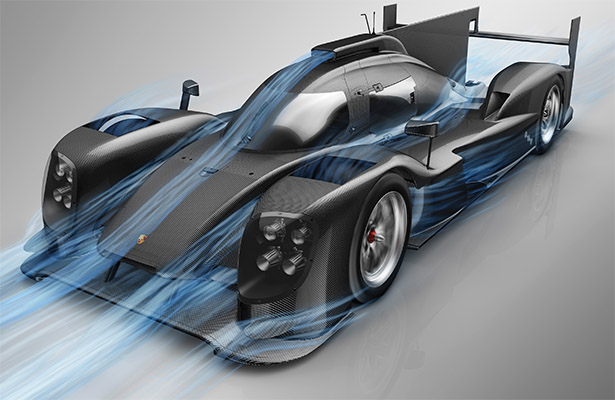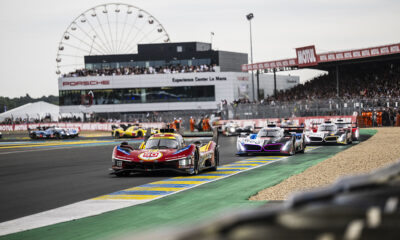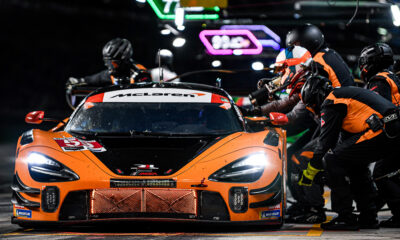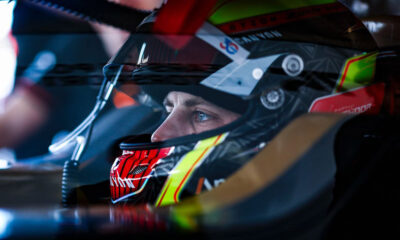
Image: Porsche
While having claimed a historic 1-2 finish in last weekend’s 24 Hours of Le Mans, Porsche is already working on new evolutions of the 919 Hybrid for 2016 and the new-for-2017 LMP1 regulations.
The German manufacturer, which rolled out an all-new car this year, will not do the same in 2016, according to technical director Alex Hitzinger, who is expecting more subtle updates heading into its third year in the FIA World Endurance Championship.
“It will not be as dramatic a change for next year,” Hitzinger told Sportscar365 last weekend at Le Mans. “We are already working on the 2017 car as well.
“Right now it’s three programs running in parallel: Continue developing the 2015 [car], developing the 2016 and the 2017 [cars].”
Porsche made a significant leap in development during the off-season, not only by building a new 919 Hybrid from the ground up, but also moving from the 6 to 8 MJ hybrid subclass, the maximum allowed in the LMP1 regulations.
Hitzinger said there’s still further gains to be made with the current 919 Hybrid, mainly in terms of efficiency.
“We’re still continuing to develop in all areas,” he said. “Aerodynamics, getting the most out of the systems which are on the car, traction control on the front and rear…
“There’s a lot of functionality development where you can gain performance, [such as] engine efficiency, gearbox efficiency, hybrid system, battery efficiency.
“If the battery ages it reduces the efficiency. All over the place are still areas where we can improve.”
While the 2016 car will likely have a similar look and feel to the Le Mans-winning 919 Hybrid, 2017 will see Porsche, and all other LMP1 manufacturers, start over with fresh designs under a new evolution of regulations.
“The 2017 [car] will be a [new] monocoque because of the regulations, which we are working on,” Hitzinger said. “It’s a big step up there.
“As the monocoque is the center of the car, it makes sense to look at everything again.”
Hitzinger would not be drawn into whether Porsche would continue with the same V4 turbo engine and hybrid systems, despite the powertrain regulations expected to remain relatively unchanged in 2017.

























